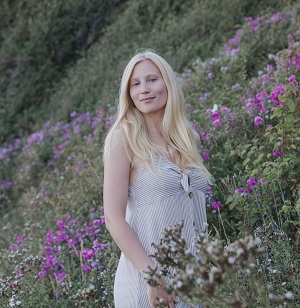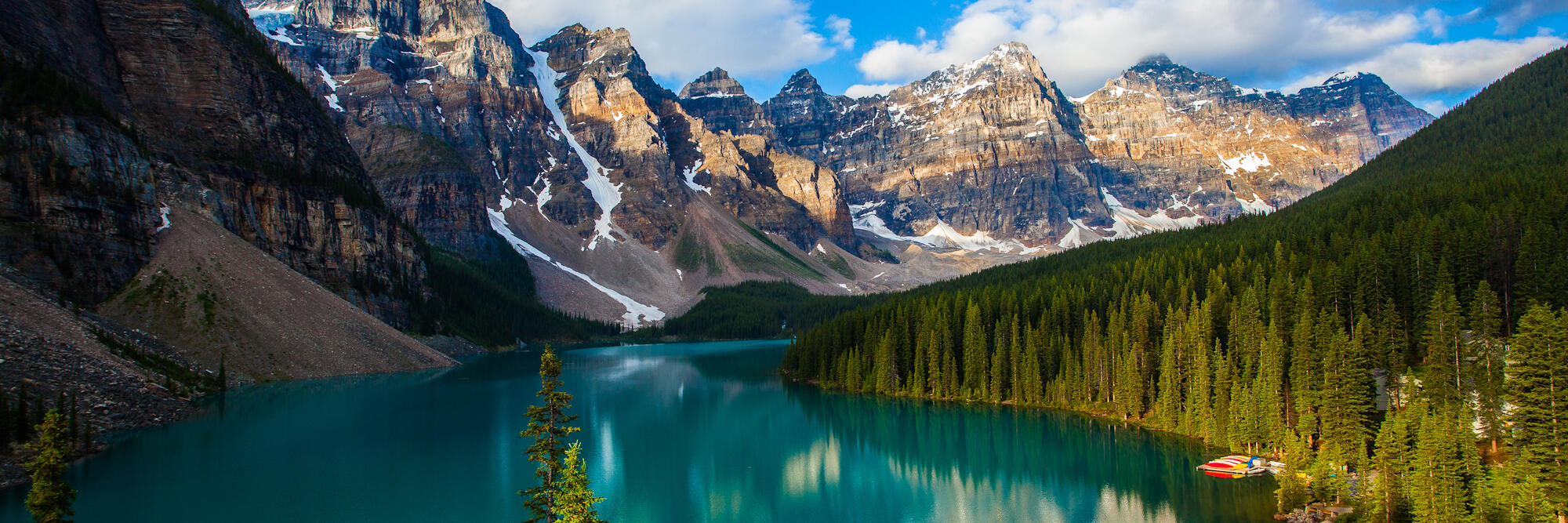Shannon is a 30-year-old expat from North Yorkshire, England, currently living in Victoria, Canada. Curious to learn more about why the world is the way it is, she majored in history at King’s College London. She is now focused on empowering people both in her personal life and as an HR adviser, where she has recruited many newcomers to Canada. Shannon is also the author of the expat memoir Trail of Worth, which gives an honest portrayal of moving overseas and finding your path in your mid-20s.
For more on Shannon’s life on Vancouver Island in Victoria, check out her blog SoleSeeking and for more on the expat lifestyle in Canada, read our Expat Arrivals Canada country guide.
About Shannon 
Q: When did you move to Vancouver Island?
A: At the end of December 2016.
Q: Is this your first expat experience?
A: Yes.
Q: Did you move to Victoria alone or with a spouse/family?
A: I moved alone, but I reunited with a Canadian man I had begun a long-distance relationship with a few years earlier. I had loved Canada for a long time, and when he and I broke up a few months into my move, I decided to stay.
Q: Why did you move?
A: I fell in love with Vancouver Island and Canada during my first backpacking trip in 2011. I wanted a change from living in England because I felt unfulfilled there. Moving to BC seemed like an exciting life change, and I thought the outdoor lifestyle and slower pace would be a better fit for me.
Q: How have your interests changed since moving to Victoria? Have you adopted any new hobbies?
A: In the year I moved to Canada, I rediscovered my hobby of competitive running. I haven’t gained many other new hobbies, but since moving here, I’ve built on my love for hiking, thanks to the variety of trails on Vancouver Island.
Q: What does your daily life look like? What are some of your favourite restaurants to eat at?
A: I work full-time as an HR adviser in a hotel. I try to prioritise my health by exercising and journaling daily. Victoria is spoilt with a great variety of restaurants and bakeries, many of which are locally owned. You can find delicious cuisine from many countries here!
Q: What has this international move and your previous solo travels taught you about yourself? And how has it affected your relationships with your loved ones?
A: Travelling solo for the first time at 19 was great for my confidence and independence. From travelling and eventually moving overseas, I’ve learned that I am braver and more capable than I thought. The hardest part about living overseas is being far from family. The pandemic really highlighted this. It’s probably the hardest compromise one has to make.
Living in Victoria
Q: What do you enjoy most about living on Vancouver Island? How would you rate the quality of life compared to England?
A: The access to the outdoors – whether it’s forest trails and lakes, ocean and beaches, or mountains – makes Vancouver Island such a great place to live. Overall, people here are very active, healthy and eco-conscious, with an appreciation for organic produce. Yoga and plant-based eating seem to be popular trends here, too.
Q: Any negative experiences? What do you miss most about home?
A: There are a few things I miss about England – hedgerows, my nieces and nephews, my mum’s garden in the summer, watching Strictly Come Dancing with my parents, and certain confectionary (thankfully, most supermarkets have a World Foods section!).
Q: What are the biggest adjustments you had to make when settling into expat life here? Did you experience any particular elements of culture shock?
A: Although we speak the same language, there have definitely been some language barriers at times in terms of the locals misunderstanding my pronunciation of certain words or different words being used for the same thing! I’d say the culture shock was pretty positive because, compared to London (where I lived for five years before moving to Canada), people in Victoria are much warmer.
Q: What’s the cost of living compared to home? Is there anything particularly expensive or particularly cheap in Victoria?
A: The residents of Victoria pay a high price for living in such a beautiful part of the world. The housing market is tough, and Canada is known to have some of the most expensive cell phone plan prices. Cheese is also very expensive! But public transit is reasonably priced, and we’re lucky that many attractions or scenic places can be accessed by foot or bike. When I lived in London, socialising always seemed to require spending money, but that’s not the case here.
Q: How would you rate the public transport in Victoria? What is your most memorable experience of using your city’s transport system?
A: There is no underground train system in Victoria and no overland trains on the island. The bus routes are pretty good, and the drivers are friendly. One of my most memorable experiences was with a driver who would share the weather forecast for the day and go out of his way to make every passenger feel welcome.
Having a car is definitely an asset as it makes accessing trails easier. You can find a second-hand car for pretty cheap.
Q: How would you rate the healthcare in Victoria? Have you had any particularly good/bad experiences with regard to doctors and hospitals?
A: There is a lack of family doctors in Victoria, so most people will use a health app created by one of the main telecommunications providers, Telus, to set up virtual consultations. Walk-in clinics are good if you’re prepared to wait. Canada’s healthcare system is quite different from the NHS in the UK. Services like the dentist and physiotherapy are more expensive here, so people rely more on extended health benefits provided by an employer to afford them.
Q: What are the biggest safety issues facing expats in Victoria? Are there any areas to avoid?
A: Victoria is safe overall, but there is quite a mental health and drug problem here (fentanyl in particular). As a port city with a warm climate, there is quite a bit of homelessness, too. That said, I’ve never felt unsafe walking by myself at night.
Q: How do you rate the standard of housing in Victoria? What different options are available for expats?
A: A lot of urban development has been going on in recent years. Unused spaces or decrepit buildings have been replaced with new condos and apartment buildings to house the growing population in Victoria. Most houses also have basement suites that are rented out – usedvictoria.com is a good place to look for a room-share!
Q: Any areas or suburbs you’d recommend for expats to live in?
A: Vic West, Fairfield, Oak Bay, and Gordon Head are good areas to check out.
Meeting people and making friends in Victoria
Q: How tolerant are the locals of foreigners? Is there obvious discrimination against any particular group? Have you ever experienced discrimination in your host city?
A: Victoria is welcoming to foreigners and very LGBTQ-friendly. Across Canada, there is an ongoing process of reconciliation with indigenous peoples.
Q: Was meeting people and making friends easy? How did you go about meeting new people?
A: As an introvert, I found it quite hard to meet people. Victoria has a lot of students, so if I had gone to university here, it would probably have been easier. I don’t have one big group of friends, but instead, I’ve formed great individual friendships through different avenues – a conversation on the bus, a running group, a baby shower, work, the gym and roommates. There are various volunteer-run groups like sports teams, hiking groups and mum groups, which can be a good way to meet people.
Q: Have you made friends with locals, or do you mix mainly with other expats? What advice would you give to new expats looking to make friends with the locals?
A: My friends are a mix of locals and expats. My advice would be to take the plunge and not be afraid to start a conversation with someone. Don’t just hang out with people from the same country as you because this might limit your experiences and hinder you from integrating into the culture.
Q: What is your community like, and how have you integrated into it?
A: I wouldn’t say I’m a huge participant in my residential community, but I’ve found a great community in my workplace. Victoria has a lot of markets and recreation centres, so there are definitely chances to integrate into your neighbourhood and build a community.
Working in Victoria
Q: How did you get a job? Was it difficult?
A: Getting my overseas experience recognised in Canada proved challenging. I registered with a staffing agency after I arrived in Victoria and did some temp admin jobs. The agency received good feedback about me, and they knew I had a background in recruiting. When an internal position opened up, they invited me for an interview. It was great to be able to support individuals who were in the same position I had been in. After 4.5 years as a recruiting consultant, I switched jobs to pursue a new challenge within HR. Finding work in Victoria is something many people find difficult, but registering with a staffing agency can really help open doors.
Q: Does the Victoria workplace differ significantly from what you were used to in the UK?
A: I’d say the workplace is quite similar, but in general, there’s a big difference in vacation allowance between North America and Europe – it’s more generous in Europe! However, Canada does have more public holidays spread out more evenly throughout the year, meaning we get several long weekends.
Q: How would you describe the general work-life balance in Victoria?
A: I have a great work-life balance. I feel lucky that, after finishing work, I can go to the beach or for a hike. Employers these days are beginning to realise the importance of promoting work-life balance and, as a result, will offer flex days and hybrid work options.
Q: Was getting a work permit or visa a relatively easy process? Did you tackle the visa process yourself, or did you enlist the services of an immigration consultant?
A: Getting a two-year work permit for Canada was a pretty straightforward process. I applied through the International Experience Class. Applying for permanent residence was a more complex and lengthy process. I went through the process myself, but I recommend using a registered immigration consultant, especially if English isn’t your first language.
Q: What is the economic climate in Victoria like? Do you have any tips for expats looking to find a job? Which resources did you find most useful?
A: As the capital of BC, Victoria has many government offices and is also a tourism and tech hub. My tips for finding a job would be to update your LinkedIn profile, register with a staffing agency, attend networking events and job fairs, volunteer, and request informational interviews. Another important step is to update your resume in line with Canadian standards as some terms may not be understandable to a Canadian (for example, many Canadian employers don’t understand the British education system.)
Final thoughts on Victoria
Q: Is there any advice you would like to offer new expat arrivals in Victoria?
A: Don’t expect it to be an easy, breezy process – there are bound to be some bumps along the road. But the process will make you stronger, and it will be worth it!
►Interviewed July 2022



